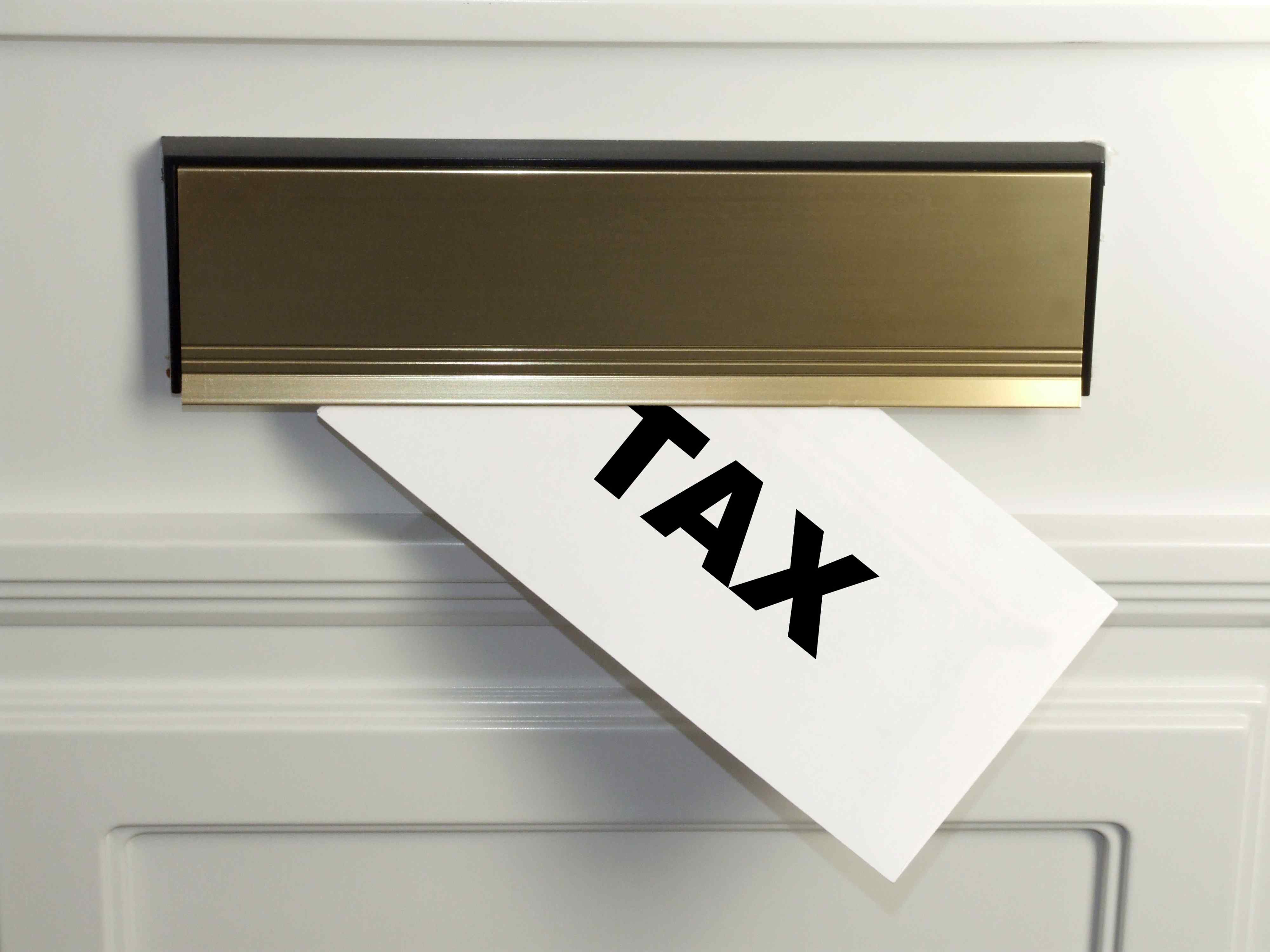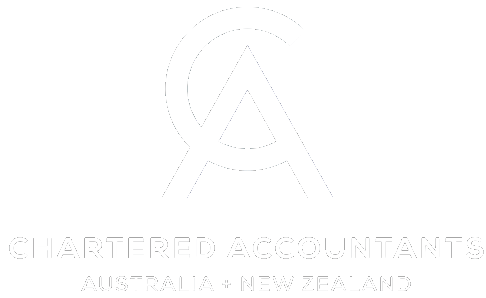
Mandating cash acceptance
The Government recently announced that it was delivering on its commitment "to mandate cash acceptance for essential purchases by finalising regulations that require fuel and grocery retailers to accept cash from 1 January 2026."
The changes mean that, from 1 January 2026, most food and grocery retailers must accept cash for in-person transactions of $500 or less between 7am and 9pm.
Small businesses with aggregate annual turnover under $10 million are generally exempted from this mandate. However, this mandate still applies to small businesses that choose to share a trademark with a large retailer.
The Government noted that, in addition to the cash mandate for fuel and groceries, consumers also already have the option to pay their bills, including utilities, phone bills and council rates, in cash at their local Australia Post outlet through Post Billpay.
The Government will review this mandate after three years, to ensure it is functioning as intended.
ATO child support data-matching program
The ATO has advised that it will acquire child support data from Services Australia for the 2025 to 2027 income years, including the following:
- client identification details (names, addresses, phone numbers, and dates of birth); and
- child support details (child support identification reference number, child support role type, and child support category).
The ATO estimates that records relating to up to 300,000 individuals will be obtained each financial year, which will be matched against ATO records.
The objectives of this program are to (among other things):
- allow Services Australia to more accurately assess child support obligations, and maximise opportunities to collect child support debts; and
- identify and educate individuals who may be failing to meet their lodgment obligations and help them to finalise their lodgment obligations, or notify the ATO that an income tax return is not required.
Time limits on GST and fuel tax credit claims
Taxpayers should note that GST credits and fuel tax credits will expire if not claimed within the 4-year credit time limit (i.e., generally four years from the due date of the original BAS in which the taxpayer could have claimed them).
Once credits expire, the ATO has no discretion or ability to amend the assessment to include those credits.
The 4-year credit time limit is different to the period of review and applies more strictly.
There may be situations where the ATO is able to amend for overpaid or underpaid GST or overclaimed credits, but additional credits cannot be included in an amendment assessment.
If credits are near expiry, instead of writing to request an amendment, taxpayers should consider:
- claiming the credits in their next BAS that is still within the 4-year credit time limit;
- requesting the amendment by lodging a revised BAS for the tax period to which the credits are attributable (these are generally processed faster than amendment requests in other forms); or
- lodging a valid objection against their assessment for the period to which the GST credits are attributable before the end of the 4-year credit time limit.
Taxpayer's dog breeding activities held to be an enterprise
The Administrative Review Tribunal ('ART') recently held that a taxpayer had carried on an enterprise of dog breeding for GST purposes.
He had lodged activity statements for the quarters ended 30 September 2018 to 31 December 2021 inclusive, claiming input tax credits ('ITCs') for the dog breeding activities he carried on from his home (among other activities).
The ATO disallowed the taxpayer's claims for the above periods, arguing that enterprises were not carried on, and that there was a lack of appropriate substantiation (among other reasons).
The ART however held that the taxpayer's dog breeding operation was an enterprise for GST purposes, noting that his activities had "the necessary commercial character." Therefore, the taxpayer was entitled to ITCs for that enterprise.
However, the ART affirmed the ATO's decision to reduce the taxpayer's other ITC claims, such as in relation to stamp duty on the acquisition of a property and for café and grocery expenses.
The ART also admonished the taxpayer for apparently using artificial intelligence in the presentation of his case, as he appeared to rely on cases and principles that did not exist.
Paying super guarantee
The ATO is reminding employers that they must pay super guarantee ('SG') contributions for eligible employees.
Employers need to pay a minimum of 12% (the current SG rate as from 1 July 2025) of each employee's ordinary time earnings into a complying super fund on a quarterly basis (the due date for the March 2026 quarter is 28 April 2026).
In most cases, employees can choose the super fund.
Employers who do not pay in full, on time or to the correct super fund will have to pay the SG charge, which is made up of the super they owe, nominal interest on those amounts (currently 10%), and an administration fee of $20 per employee, per quarter.
These payments must be made through SuperStream (where super payments and information move through the system electronically).
Employers who use the Small Business Superannuation Clearing House to make super contributions should note that this service will be permanently closed from 1 July 2026. Existing users should switch to an alternative method to pay their employees' super guarantee.
Also, when new employees start, employers may have an extra step to take to comply with the 'choice of fund rules' if the new employee does not choose a super fund. Employers may now need to request the new employee's 'stapled super fund' details from the ATO.
Tax dodgers banned from leaving the country
The ATO is actively using departure prohibition orders ('DPOs') as part of a broader shift towards strengthening payment performance and debt collection. A DPO is an enforcement action available to the ATO to prevent certain persons with tax liabilities from leaving Australia without paying their outstanding tax.
Since July 2025, the ATO has issued 21 DPOs, more than the total number issued in the entire financial year ended 30 June 2025.
The ATO notes that a taxpayer was recently prevented from boarding a flight in the early hours of the morning due to a DPO imposed because of deliberate non-payment of a significant debt.

Year-end (and other) staff parties
FBT and 'entertainment'
Under the FBT Act, employers must choose how they calculate their FBT meal entertainment liability, and most use either the 'actual method' or the '50/50 method', rather than the '12-week method'.
Using the actual method
Under the actual method, entertainment costs are normally split up between employees (and their family) and non-employees (e.g., clients).
Such expenditure on employees is deductible and liable to FBT. Such expenditure on non-employees is not liable to FBT and not tax deductible.
Using the 50/50 method
Rather than apportioning meal entertainment expenditure on the basis of actual attendance by employees, etc., many employers choose to use the more simple 50/50 method.
Under this method (irrespective of where the party is held or who attends) 50% of the total expenditure is subject to FBT and 50% is tax deductible.
However, the following traps must be considered:
- even if the function is held on the employer's premises – food and drink provided to employees is not exempt from FBT;
- the minor benefit exemption* cannot apply; and
- the general taxi travel exemption (for travel to or from the employer's premises) also cannot apply.
(*) Minor benefit exemption
The minor benefit exemption provides an exemption from FBT for most benefits of 'less than $300' that are provided to employees and their associates (e.g., family) on an infrequent and irregular basis.
The ATO accepts that different benefits provided at, or about, the same time (such as a Christmas party and a gift) are not added together when applying this $300 threshold.
However, entertainment expenditure that is FBT-exempt is also not deductible.
Example: Christmas party
An employer holds a Christmas party for its employees and their spouses – 40 attendees in all.
The cost of food and drink per person is $250 and no other benefits are provided.
If the actual method is used:
- For all 40 employees and their spouses – no FBT is payable (i.e., if the minor benefit exemption is available), however, the party expenditure is not tax deductible.
If the 50/50 method is used:
- The total expenditure is $10,000, so $5,000 (i.e., 50%) is liable to FBT and tax deductible.
Christmas gifts
Again, it is important to understand how gifts to staff and clients, etc., are handled 'tax-wise'.
Gifts that are not considered to be entertainment
These generally include a Christmas hamper, a bottle of whisky or wine, gift vouchers, a bottle of perfume, flowers or a pen set, etc.
Briefly, the general FBT and income tax consequences for these gifts are as follows:
- gifts to employees and their family members – are liable to FBT (except where the 'less than $300' minor benefit exemption applies) and tax deductible; and
- gifts to clients, suppliers, etc. – no FBT, and tax deductible.
Gifts that are considered to be entertainment
These generally include, for example, tickets to attend the theatre, a live play, sporting event, movie, etc, a holiday airline ticket, or an admission ticket to an amusement centre.
Briefly, the general FBT and income tax consequences for these gifts are as follows:
- gifts to employees and their family members – are liable to FBT (except where the 'less than $300' minor benefit exemption applies) and tax deductible (unless they are exempt from FBT); and
- gifts to clients, suppliers, etc. – no FBT and not tax deductible.
Actual method used for meal entertainment
Under the actual method no FBT is payable, because the cost of each separate benefit (being the expenditure on the Christmas party and the gift respectively) is less than $300 (i.e., the benefits are not aggregated).
No deduction is allowed for the food and drink expenditure, but the cost of each gift is tax deductible.
50/50 method used for meal entertainment
Where the 50/50 method is adopted:
- 50% of the total cost of food and drink is liable to FBT and tax deductible; and
- in relation to the gifts:
- the total cost of all gifts is not liable to FBT because the individual cost of each gift is less than $300; and
- as the gifts are not entertainment, the cost is tax deductible.

Alternative providers to the SBSCH
Employers should start preparing for the permanent closure of the Small Business Superannuation Clearing House ('SBSCH') on 1 July 2026.
By acting now to find an alternative service, employers will:
- have an established process in place to pay super guarantee ('SG') for the March and June quarters (if they currently pay quarterly);
- reduce the risk of late payment of SG for the June 2026 quarter due date (28 July), as the SBSCH will be already closed;
- have more time to set up their business cash flow to enable frequent payments of SG; and
- have finalised payments and downloaded any reports from the SBSCH before it closes permanently.
Employers that are still using the SBSCH should be aware of the following key dates.
- 10 December 2025 — Super payments, along with instructions, must be received by 5.30 pm AEDT on this date. The ATO says payments received after this time will be processed from 2 January 2026.
- 28 January 2026 — December 2025 SG quarterly payments due date.
- February to March 2026 — Employers should move to an alternative option to the SBSCH.
- 28 April 2026 — March 2026 SG quarterly payments due date.
- 30 June 2026 — Final day for employers to use the service, make any final payments and download reports.
- 28 April 2026 — March 2026 SG quarterly payments due date.
- 30 June 2026 — Final day for employers to use the service, make any final payments and download reports.
- 1 July 2026 — SBSCH is no longer available.
Employers may already have other options readily available so they can exit from using the SBSCH ahead of time.
They should check their existing software and payroll packages, as they may already include super functions they can use to pay SG.
Otherwise, employers can look for options from super funds or digital service providers offering payroll services, software or commercial clearing houses.
Reminder of December 2025 Quarter Superannuation Guarantee ('SG')
As noted in the above article, employee super contributions for the quarter ending 31 December 2025 must be received by the relevant super funds by 28 January 2026.
If the correct amount of SG is not paid by an employer on time, they will be liable to pay the SG charge, which includes a penalty and interest component.
The SG rate is 12% for the 2026 income year (increased from 11.5% for the 2025 income year).
Dental expenses are private expenses
The ATO has been seeing a number of deduction claims for dental expenses this tax time. Dental expenses, including preventative and necessary dental treatment, medical expenses and other costs relating to client's personal appearance (such as teeth whitening, makeup, skin care, shaving products and haircuts) are not deductible.
These expenses are generally private expenses, even if an employer expects an employee to maintain a certain appearance, or pays them an allowance to cover grooming expenses.
Taxpayers should remember that they can only claim an expense that directly relates to earning their income. Private expenses cannot be claimed as a deduction.
Taxpayers should have written evidence of all their expenses, and be able to show a direct connection with those expenses to their employment income.
Australians call out tax dodgers in record numbers
The ATO has hit a major milestone of over 300,000 tip-offs from the community about tax avoidance and other dishonest behaviours since 1 July 2019. In the 2024/25 financial year alone, almost 50,000 red flags were raised by members of the community who spotted something suspicious.
Most of the tip-offs received related to shadow economy activity, coming from customers, employees, other businesses, and even family and friends.
This year, Australians reported businesses and individuals who:
- did not declare their income;
- demanded or paid for work in cash to avoid tax;
- lived lifestyles that did not match their known income; and
- failed to report all sales.
The top three industries seeing a surge in 'red flags' this financial year are:
- building and construction;
- cafes and restaurants; and
- hairdressing and beauty services.
ATO's new approach to holiday home expenses
The ATO has announced that it will take a somewhat different approach in relation to expenses that are claimed in relation to holiday homes.
Broadly, the ATO now takes the view that, if a taxpayer's rental property is also their holiday home, certain deductions relating to holding it will be completely denied (rather than being apportioned).
Expenses relating to ownership and use of the holiday home (e.g., interest, rates and maintenance) will not be deductible, unless the holiday home is 'mainly' used to produce assessable income.
Whether a holiday home is used 'mainly' to produce assessable income will be determined based on a consideration of a number of factors.
However, this will generally not apply to expenses incurred in relation to holiday homes that are rental properties before 1 July 2026, if those expenses are incurred under an arrangement entered into prior to 12 November 2025.
ATO warns about barter credit tax scheme
The ATO is warning the community to steer clear of an emerging tax scheme involving barter credits — a type of alternative currency used in some business networks.
A tax scheme that involves artificially inflating deductions for donations of barter credits to deductible gift recipients ('DGRs') is on the rise. While it may seem enticing, promoters and taxpayers could face potentially significant consequences if they are involved.
The ATO is concerned that such schemes are being enabled by several barter exchanges that are allowing participants to access barter credits with a nominal face value that is much more than any payments actually made to the exchange. Participants then donate these barter credits to a DGR and claim a larger tax deduction than they are entitled to.
Those involved may have to repay the tax, plus face heavy penalties, interest and legal action.

Dual cab utes and FBT
The ATO wishes to dispel the 'common myth' that dual cab utes are automatically exempt from fringe benefits tax ('FBT'). If an employer provides dual cab utes to staff to complete their duties and the vehicle is available for personal use, then the benefit may be subject to FBT.
By understanding how their employees use their dual cab utes, employers can work out if FBT applies and meet their FBT obligations.
To qualify for an exemption, the dual cab ute must be an 'eligible vehicle'. That is, it must be designed to carry a load of one tonne or more, or more than eight passengers (including the driver), or a load under one tonne and not primarily designed for carrying passengers.
The dual cab ute must also only be used for limited private use (i.e., minor, infrequent and irregular), such as the occasional trip to the tip or helping a mate move house.
If an employee's personal use of the dual cab ute does not meet both of the above exemption conditions, then the employer will be liable for FBT.
ATO reminder: Business expenses that can (and cannot) be claimed
Taxpayers can claim a tax deduction for most business expenses, provided they meet the ATO's three 'golden rules':
- The expense must be for business use, not for private use.
- If the expense is for a mix of business and private use, they can only claim the portion that is used for business.
- They must have records to prove their claim.
The ATO also wants business taxpayers to remember that there are some expenses that they cannot claim, including entertainment expenses, traffic fines, and expenses that relate to earning non-assessable income.
ATO's focus on small business
The ATO is 'detecting and addressing' recurring errors in specific industries when businesses have a turnover between $1 million and $10 million.
These industries include property and construction (including builders, contractors and tradies), and professional, scientific and technical services (including engineering, design, IT and consulting professionals).
In these industries, the ATO continues to see recurring issues, including:
- omitted sales and income in BAS and tax returns, including income from related entities;
- overclaimed expenses and GST credits;
- private expenses incorrectly reported as business-related, or not properly apportioned between business and personal use;
- failure to register for GST when required;
- incorrect claims for the research and development (R&D) tax incentive offset, especially for activities that do not meet the eligibility criteria; and
- not seeking independent advice from a registered tax agent, particularly in head contractor/subcontractor arrangements.
By sharing the issues that it is seeing, the ATO hopes to help taxpayers running a small business in one of these (or other) industries to avoid common errors and get it right from the start.
New ATO Data-Matching Programs
The ATO acquires and uses data for pre-filling, detecting dishonest or fraudulent behaviour, and identifying areas where it can educate taxpayers to help them understand their tax obligations.
When data does not match, the ATO may contact tax agents and their clients to find out why.
Rental Income Data-Matching
Over the coming months, the ATO will be sending letters where its data indicates:
- tax returns including rental income may need to be lodged for specific years; or
- rental income should be included in previously lodged tax returns.
Offshore Merchant Data-Matching Program
The ATO will acquire merchant data from the big four Australian banks (ANZ, Commonwealth Bank, National Australia Bank and Westpac) for the 2025 to 2027 income years.
The ATO estimates that records relating to approximately 9,000 offshore merchants will be obtained each financial year.
SMSF non-compliance with release authorities
Release authorities are documents issued by the ATO to super funds, authorising the release of money from a member's super account to pay specific liabilities, including in relation to excess concessional contributions, excess non-concessional contributions, and Division 293 tax assessments.
The ATO is seeing a rise in SMSFs that receive a release authority and are either:
- not responding within 10 business days as required; or
- responding incorrectly (i.e., either not releasing the requested amount, or failing to submit a release authority statement back to the ATO, or both).
Failure to meet these obligations may result in significant penalties for the fund. SMSF trustees should make sure they have effective processes in place to respond to release authorities promptly and accurately
GST held to apply to sales of subdivided lots
The Administrative Review Tribunal ('ART') recently held that some sales of subdivided farmland were subject to GST as they were made by the taxpayer in the course of carrying on an enterprise.
The taxpayer owned farmland near Adelaide. He entered into an agreement with a developer, under which the developer sought rezoning and development approvals, carried out development works, and marketed the subdivided lots.
The taxpayer progressively gave the developer access to the property as required and signed documents where necessary, including contracts for the sale of the subdivided lots. The taxpayer received 20% of the proceeds of sale progressively as sales of the subdivided lots were completed, with the developer receiving the remaining 80%.
The taxpayer argued that his role was passive, and that such rights as he had, and actions he took under the agreement with the developer, were of an administrative nature not amounting to a series of activities in the form of a business.
The ART disagreed, finding that the sales of the subdivided land were subject to GST as they were made in the course of carrying on an enterprise.
The ART noted that the taxpayer's activities "exhibited some of the well-known indicia of a business."
Amongst other factors, the taxpayer's activities in facilitating the implementation of the development agreement "had a degree of regularity and repetition", including allowing access to the land progressively as required, an ongoing obligation not to encumber or sell the land during the project, and the continuous signing of sales contracts and monitoring of sales returns.

Employees Incorrectly Treated as Independent Contractors
The ATO is warning businesses that if they incorrectly treat an employee as an independent contractor, then they risk receiving penalties and charges, including:
- PAYG withholding penalty for failing to deduct tax from worker payments and send it to the ATO;
- Super guarantee charge ('SGC'), which is more than the super that would have been paid if the worker was classified correctly. SGC consists of a super guarantee shortfall amount, nominal interest, and an administration fee; and
- Additional SG penalties, including a penalty amount of up to 200% of the SGC.
'Sham contracting' may also contravene the Fair Work Act 2009. Courts can impose penalties against a business or person that incorrectly informs an employee that they are an independent contractor.
Reminder of September Quarter Superannuation Guarantee ('SG')
Employers are reminded that employee super contributions for the quarter ending 30 September 2025 must be received by the relevant super funds by Tuesday, 28 October 2025. If the correct amount of SG is not paid by an employer on time, they will be liable to pay the SG charge, which (as noted above) includes a penalty and interest component.
Correctly Dealing With Rental Property Repairs
Taxpayers who have had work done on their rental property should ensure the expense is categorised correctly to avoid errors when completing their tax return.
A deduction for 'repairs and maintenance' expenses can be claimed for work done to remedy, or prevent defects, damage or deterioration from using the property to earn income. These expenses can be claimed in the year they were incurred.
However, some 'capital' expenditure may not be immediately deductible, such as for 'initial repairs', 'capital works', 'improvements' and depreciating assets.
Initial repairs include fixing any pre-existing damage or deterioration that existed at the time of purchasing the property, even if the damage or deterioration was unknown to the taxpayer at the time of purchase.
Initial repairs are treated as part of the acquisition cost and included in the cost base of the property for CGT purposes, unless they are capital works or depreciating assets.
Capital works are structural improvements, alterations and extensions to the property, and can generally be claimed at 2.5% over 40 years.
Capital works deductions can only be claimed after the work has been completed, regardless of when the taxpayer pays the deposit and instalments.
Improvements or renovations that are structural are also capital works. Work that goes beyond remedying defects, damage or deterioration that improves the function of the property is regarded as an improvement.
Repairs to an 'entirety' are capital and cannot be claimed as repairs. Repairs to an entirety generally involve the replacement or reconstruction of something separately identifiable as a capital item.
Depreciating assets are treated as follows:
- Deductions for 'new' assets must generally be claimed over time according to their effective life.
- Second-hand depreciating assets generally cannot be deducted.
Tips to Help Sole Trader Clients
The ATO is seeing sole traders make mistakes in the following areas:
- not reporting all income — this includes income earned outside their business (like a 'side hustle'), cash jobs, or payments in-kind/barter deals;
- overclaiming expenses — this includes claiming the portion of an expense related to personal use, or overstating the cost of goods sold and other business expenses;
- calculating business losses;
- incorrectly claiming and offsetting losses from non-commercial business activities against other income sources;
- misreporting personal services income ('PSI') to gain tax benefits;
- not registering for GST if they are in the taxi or ride-sourcing industry, or when they reach the GST threshold; and
- not keeping accurate and complete records.
ATO Warning Regarding Private Use of Work Vehicles and FBT
Employers that supply work vehicles to their employees need to check how the work vehicles are used and whether any exemptions apply to determine if they attract fringe benefits tax ('FBT').
FBT generally applies when a work vehicle is made available for private use, even if it is not actually used. Private use includes any travel not directly related to the employee's job.
Exemptions may apply depending on the vehicle's specifications and the nature of the private use.
The most common issues the ATO sees include the following:
- incorrectly treating private use as business use;
- assuming dual cab utes are exempt from FBT — exemptions only apply if the vehicle is eligible for the specific FBT exemption and private use is limited;
- incorrectly classifying vehicles;
- poor record keeping that does not support the claims or the FBT calculations made; and
- not reporting or paying on time.
ART Dismisses Argument That Medical Expenses Were Deductible
In a recent decision, the Administrative Review Tribunal ('ART') held that a taxpayer could not claim a tax deduction for medical expenses incurred by him in relation to his total and permanent disability pension.
The taxpayer had been terminated from his employment due to total and permanent disablement ('TPD'). For the 2024 income year, his only income was a TPD pension.
The ART agreed with the ATO that the medical expenses were not deductible. The ART noted in this regard that the medical expenses were "incurred by (the taxpayer) to better live with his medical condition, not incurred 'in' gaining or producing the TPD pension." That is, "the occasion of the Medical Expenses is to assist (the taxpayer) with his medical condition, not to gain or maintain his eligibility to the TPD pension."
The ART also did not accept the taxpayer's argument that the medical expenses were not private or domestic in nature, as they were essentially personal in character.

ATO to include tax 'debts on hold' in taxpayer account balances
From August 2025, the ATO is progressively including 'debts on hold' in relevant taxpayer ATO account balances.
Taxpayers with 'debts on hold' of $100 or more will receive (or their tax agent will receive) a letter before it is added to their ATO account balance (which can be viewed in the ATO's online services or the statement of account).
Taxpayers with a 'debt on hold' of less than $100 will not receive a letter, but the debt will be included in their ATO account balance.
The ATO has advised it will remit the general interest charge ('GIC') that is applied to 'debts on hold' for periods where they have not been included in account balances. This means that taxpayers have not been charged GIC for this period.
The ATO will stop remitting GIC six months from the day the taxpayer's 'debt on hold' is included in their account balance. After this, GIC will start to apply.
Bill to reduce student debt now law
Legislation has recently been enacted which delivers on the 2025/26 Federal Budget announcement to reduce student debts.
Pursuant to this legislation:
- there is a one-off 20% reduction to Higher Education Loan Program debts and other student loans that were incurred on or before 1 June 2025;
- the minimum repayment threshold is increased from $54,435 in the 2024/25 income year to $67,000 in the 2025/26 income year (to continue to increase each year with the growth in wages); and
- a marginal repayment system is introduced where compulsory student loan repayments are calculated only on income above the new $67,000 threshold (rather than having it based on a percentage of the repayment income).
Getting the main residence exemption right
The ATO has the following tips for taxpayers in relation to the CGT main residence exemption.
- They should consider if they have bought or disposed of property in the past income year. If they have sold property, were they using it solely as their primary place of residence, earning income from it (rental or business), or was it vacant land?
- They should understand the applicable record keeping requirements in relation to property.
- If they have disposed of vacant land, they are not eligible for the main residence exemption, even if they had intended to build their main residence on the land.
- They are only eligible for the '6-year absence rule' if the property was their main residence before they rented it out.
- Broadly, they can only have one property as their main residence at a time - the only exception is the 6-month period when they move from one home to another.
ATO AFCX data-matching program
The ATO will acquire relevant account and transaction data from the Australian Financial Crimes Exchange ('AFCX') for the 2025 to 2027 income years, including the following:
The ATO estimates that records relating to approximately 70,000 individuals will be obtained each financial year.
The data collected under this program will be used to (among other things) safeguard taxpayer accounts from identity crime by implementing protective controls to enable pre-lodgment detection and application of treatments to victims of fraud.
PAYGW reminders for activity statement lodgments
The ATO will be sending certain employers a reminder to lodge their activity statements.
The reminder will include the amounts the ATO has on record for them, such as:
- PAYG withheld amounts reported through Single Touch Payroll; and
- any other pre-filled amounts, including GST instalments and PAYG instalments (instalment amount option).
The ATO's reminders are intended to provide a timeframe for employers to review (and if necessary correct) the amounts the ATO has on record for them and lodge their activity statements.
If these selected employers do not lodge by the specified date, the ATO will consider the amounts it has on record are correct and complete, and it will add these amounts to the employer's account, meaning they will be due and payable.
The ATO may also finalise the employer's activity statement and consider it lodged unless the employer has any other obligations such as GST to report.
If employers do not make any changes to correct the data or lodge by the due date and the activity statement has been finalised in ATO systems, they will need to adjust these amounts by lodging a revised activity statement.
If the information is correct, they will not need to take any further action.

Paid parental leave changes have now commenced
As from 1 July 2025, the amount of Paid Parental Leave available to families increased to 24 weeks, and the amount of Paid Parental Leave that parents can take off at the same time has also increased from two weeks to four weeks.
Superannuation will now also be paid on Government Paid Parental Leave from 1 July 2025, at the new super guarantee rate of 12%, paid as a contribution to their nominated superannuation fund.
Parents will also benefit from an increase in the weekly payment rate of Paid Parental Leave, increasing from $915.80 to $948.10 (in line with the increase to the National Minimum wage). This means a total increase of $775.20 over the 24-week entitlement.
ASIC warning about pushy sales tactics urging quick super switches
ASIC is warning Australians to be on 'red alert' for high-pressure sales tactics, click bait advertising and promises of unrealistic returns which encourage people to switch superannuation into risky investments.
The warning comes amid increasing concerns from ASIC that people are being enticed to invest their retirement savings in complex and risky schemes.
ASIC Deputy Chair Sarah Court said the start of a new financial year was often the trigger for people to check their super fund's performance, and urged consumers to be extra cautious.
"When it comes to sales calls about super switching, there are some big red flags people should be alert to — being asked to make a quick decision is one of the most obvious. Remember, a good deal won't vanish overnight."
She said that these calls "don't have the hallmarks of a typical scam. The caller will seemingly have your best interests at heart, and they say they want to help you find a better super product or locate lost super for free."
Consumers should always ask questions about salespeople's connections to funds, particularly in circumstances where a particular fund appears in the pitch, as there may be a commission arrangement.
"If you are unsure or are feeling pressured, just hang up."
ATO warns of common Division 7A errors
The ATO reminds shareholders of private companies that understanding how Division 7A of the tax legislation applies is crucial to avoiding costly tax consequences when accessing the company's money or other benefits.
When Division 7A applies, the recipient of a payment, loan or other benefit can be deemed to have been paid an unfranked dividend that will be included in their assessable income.
While Division 7A can be complex, most errors the ATO sees that result in its application are simple in nature, including:
- shareholders not recognising that acompany's money is not their money, andthey cannot access it for personal usewithout tax consequences;
- loans being made without complying loanagreements; and
- applying the wrong benchmark interestrate when calculating Division 7A loanrepayments.
These errors are often the result of common myths about Division 7A and how it works.
To support taxpayers' understanding of their tax obligations when managing private company money, the ATO has launched new content: 'Division 7A Myths debunked' on its website.
This page debunks common myths about Division 7A, breaking them into topics such as 'business structure', 'record keeping', and 'payments to other entities'.
Taxpayers who need to lodge a TPAR
Taxpayers may need to lodge a Taxable payments annual report ('TPAR') online by 28 August if they have paid contractors to provide any of the following services on their behalf:
- building and construction;
- cleaning;
- courier and road freight;
- information technology; or
- security, investigation or surveillance.
If the ATO is expecting a TPAR from a taxpayer who does not need to lodge one, they can complete a 'TPAR non-lodgment advice form' by 28 August.
Taxpayers who no longer pay contractors can also use this form to tell the ATO they will not need to lodge a TPAR in the future (although if their circumstances change they may need to lodge a TPAR).
Changes to tax return amendment period for business
Businesses with an annual aggregated turnover of less than $50 million now have up to four years from the date of their tax return assessment to request amendments (increased from two years). This applies to assessments for the 2024/25 and later income years.
If businesses make a mistake on a tax return and need to request an amendment, they should lodge their requests well before the end of the amendment period to make sure the ATO can process it within the time limit.
They should keep accurate and complete records to support their amendment request.
Taxpayer's claim for travel expenses denied
In a recent decision, the Administrative Review Tribunal ('ART') denied an offshore worker's claim for work-related travel expenses, although it did allow his claim for home office expenses.
During the relevant period, the taxpayer resided in Queensland with his family, while his employment as an engineer was primarily based at an offshore facility located off the coast of Western Australia.
In his tax return for the 2022 income year, the taxpayer claimed work-related expenses of over $30,000, relating to accommodation, meal and incidental expenses for stays in Perth, Darwin and Broome between rotations on the offshore facility.
The ART noted that the taxpayer's permanent work location was the offshore facility. It accordingly largely disallowed the work-related expenses on the basis that they were "either preliminary to the commencement of those (employment) duties, or occurred after employment duties had ceased, and the (taxpayer) was on leave."
The ART also did not accept the taxpayer's claim for travel-related expenses with reference to the substantiation exception, as the allowances he received were not 'travel allowances'.
However, the ART did accept the taxpayer's claim for home office expenses of $579, noting that "As an engineer, he is required to engage in continuing professional development and the Masters and other studies completed in the home office were for this purpose."

To assist us in the preparation of your 2025 Income Tax Return(s) we have prepared a brief checklist detailing the information we require. Please complete the checklist and return it to us, together with all the relevant documents and details requested. The checklist can be found here.
In an endeavour to complete your tax return(s) efficiently and to meet the lodgement deadlines, we ask that you forward your information to us as soon as possible. Before you do, please check it against last year’s return(s) for completeness. We also request that you attend to any queries raised by us during the preparation of the return(s) as quickly as possible.
The ATO is continuing its policy of conducting random tax audits to ensure compliance, and will impose penalties for errors and omissions in returns lodged. We remind you that the onus is on you, as the taxpayer, to ensure a detailed and accurate disclosure of income and expenses is made at all times. We strongly suggest that claims for rental property expenses and work related expenses be supported by the appropriate documentary evidence before you forward your information to us for the preparation of your return(s).
We have also prepared a summary of key issues to consider; the summary can be found here.
We would also like to bring to your attention our revised Engagement terms and Privacy Policy.
Should you have any doubts as to the assessability or deductibility of an item please provide us with the full details or contact this office and we will be pleased to assist you.
List of items to review:
StewartBrown
ABN: 63 271 338 023
Level 2, Tower 1,
495 Victoria Avenue
Chatswood, NSW, 2067
Stewart Brown Advisory Pty Ltd
ABN: 19 143 011 750
AFSL: 355134
Level 2, Tower 1,
495 Victoria Avenue
Chatswood, NSW, 2067

StewartBrown
ABN: 63 271 338 023
Level 2, Tower 1,
495 Victoria Avenue
Chatswood, NSW, 2067
Stewart Brown Advisory Pty Ltd
ABN: 19 143 011 750
AFSL: 355134
Level 2, Tower 1,
495 Victoria Avenue
Chatswood, NSW, 2067








 Careful planning and timing are always important when taxation is concerned. To help inform clients, we have prepared this checklist which you may find helpful in planning your year-end tax strategies. This document is not exhaustive, and your individual circumstances must be considered.
Careful planning and timing are always important when taxation is concerned. To help inform clients, we have prepared this checklist which you may find helpful in planning your year-end tax strategies. This document is not exhaustive, and your individual circumstances must be considered.




